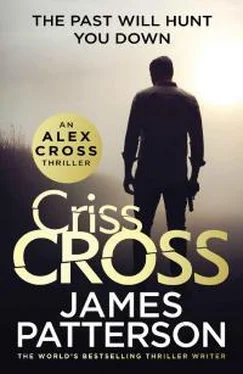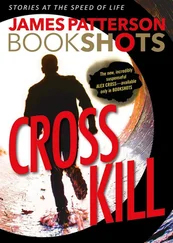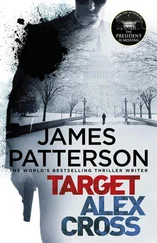M’s eyes opened. “So?”
“When did you stop listening to your heart?”
He shook his head. “I don’t know what you’re—”
“Yes, you do,” I said. “You stopped listening to your heart because you thought it was broken. And that’s when you started listening to the angry voices in your head. Were you thirteen? Fourteen?”
CHAPTER 103
I HAD NOT ASKED THESEquestions idly.
A remarkable number of suicidal or homicidal adults endured some traumatic event in their late tweens to early teens, when their hormones were surging and going haywire and their emotions were swinging wildly.
In essence, the experience of that trauma is magnified by the hormones and amplified by the mood swings. I believe such a brutal event in those years wounds the brain, causes short circuits, and etches in hatred, self-loathing, and neuroses.
When I asked M about his early teen years, a shadow came over his face, and he shut his eyes.
For almost five minutes, I waited for an answer. The only sounds were our breathing and the monitors.
“I was fourteen,” M said at last, opening his eyes. “My sister was raped and murdered. I found the man who did it and beat him to death with a chain.”
“That’s when you stopped listening to your heart? Before you killed him?”
“Afterward,” he said. “When I realized I’d liked beating that son of a bitch to death, and I wanted to do it over and over and over again.”
I nodded. “That would do it.”
“Do what?”
“Silence your heart. Divorce you from your soul.”
I stayed in eye contact with him, saw the twitching of his cheek muscles.
“I don’t have a soul or a heart.”
“Of course you do,” I said. “The bullet missed it completely, and it’s still there. You can listen to it if you dare. You might find hope.”
“Of what?”
“Redemption.”
He laughed softly. “There is no redemption for a man like me.”
“Yes, there is. Close your eyes.”
I had a moment of doubt when I thought he might shut me down. But then his eyelids closed.
“Listen to your heart,” I said quietly. “It’s still there. It will tell you what to do.”
He breathed, swallowed, shifted uncomfortably, and then opened his eyes. “I’ve done too much.”
“You can still listen. Just like you did when you were a young boy, like my son.”
M’s jaw stiffened. His lower lip curled against his teeth.
I gazed at him steadily, trying not to show how desperate I was. Every minute that passed was worse for Ali.
“I’m sorry, Cross,” he said. “I went deaf to this kind of crap a long time ago.”
“No, you didn’t. You just unplugged the receiver.”
“Does it matter now? It won’t change things.”
“Maybe not, but it will change you.”
I could tell that caught him off guard, and I wanted to keep him that way. “You must have liked Ali. You can’t meet my son and not be swept up in his enthusiasm.”
“Kid talks a lot.”
I smiled. “Nonstop.”
“Smart.”
“Brilliant.”
M glanced at the ceiling, then back at me. “Life is full of injustice.”
“You watched my family,” I said. “You’ve seen Ali smile. Heard Ali laugh.” I paused, trying to channel my love for my son but not wanting my emotions to overwhelm me. “That boy has a lifetime ahead of him,” I went on. “Who knows what Ali will be able to do if you’ll just take a chance and listen to your heart.”
M stayed silent and would not look at me.
I waited a full ten minutes, sighed, then turned and headed for the door.
I’d opened it and was leaving when M said, “Cross.”
I wanted to melt but stood tall and pivoted to look at him.
“The anthill,” he said.
CHAPTER 104
THE FBI HELICOPTER FLEW INover Dwight Rivers’s property in the Shenandoah Valley and landed in the meadow between the solar panels and the house. It was past midnight. A full moon lit the place in a strange blue light.
We’d called Rivers, who’d gone home to heal after being released from the hospital. He said he had not been in the anthill since returning. The FBI had sealed the bunker because of the head found in there.
“Exceptional hiding place if you think about it,” Mahoney said.
“Who would look in a sealed crime scene?” Bree said before the pilot gave us the all-clear.
We jumped out and started running toward Rivers’s bunker. There were lights on in his house, but we found him on crutches next to an ATV waiting by the main entrance to the anthill.
“Padlock’s still in place,” he said. “So is the seal.”
We all shone flashlights on the seal, which showed no signs of having been tampered with. Mahoney took two pictures of the seal, then broke it.
Rivers gave us the padlock combination, and we were quickly inside. The doomsday prepper hobbled in behind us, flipping switches, starting generators, lighting the anthill up from top to bottom.
“If your son is in here, you’ll find him, Dr. Cross,” Rivers said. My thoughts were on Ali, but I couldn’t help noting the irony that I’d suspected the man enough to break into his bunker, and yet here he was, helping me to find my boy.
“Thank you, sir,” I said, then I led the way down the short hallway to the staircase.
Mahoney and Sampson climbed. Bree and I descended.
“Ali!” we shouted. “Ali Cross, can you hear us?”
We opened doors and went into every level of the maze, calling and looking in the kitchen, the armory, the security hub, the battery operation, and the water-filtration room. The workshop, where the head was found, was still sealed tight off the main staircase. I broke the seal and we went inside.
The first thing I noticed was that the heavy steel door at the opposite end of the space was on the floor in the hallway beyond. That door had been locked and sealed. The rest of the workshop looked much as I remembered it except there weren’t any bloody tools or equipment; the FBI had seized those as evidence.
Then I noticed an empty plastic water jug by one of the lockers and empty tins of food strewn in the corners.
“Smell that?” Bree said.
I did, faintly. “Human waste.”
It didn’t take long to locate the smells. The floor drain stank of stale urine, and in a closed locker, we found zip-lock bags filled with feces and used toilet paper.
Mahoney and Sampson came in. “Anything?”
“He played me again,” I said, shaking my head in helpless anger.
“Someone was confined in here,” Bree said.
“I have a forensics team on its way from Quantico,” Mahoney said. “Let’s back out, let them do their jobs, figure out for sure if it was Ali being held here.”
“I know he was,” I said, and I gestured at dust by one of the lockers, where a single finger had doodled a design. “Ali draws those in his notebooks all the time.”
Bree nodded, said, “And there are small footprints over by that door.”
I went over and saw multiple shoe prints on top of each other, including several that looked Ali’s size. I shone a light into the hall and spotted an acetylene blowtorch and tank by the ladder and a discarded hacksaw blade.
Bree said, “M must have come down this interior ladder and blowtorched and cut his way in. With the seal and lock still on the main staircase door, he’d know no one was coming in here. Perfect place to keep a kidnap victim.”
That made me furious.
“Ali!” I shouted up the ladder. “Ali, can you hear me?”
“Alex?” Mahoney said. “He’s not here anymore. We need to back out. Be sure.”
“I’m staying,” I said.
“No, you’re not,” Bree said. “You’re coming home with me. I need you. So do Nana and Jannie. We’ll go back to talk to M in the morning.”
Читать дальше












